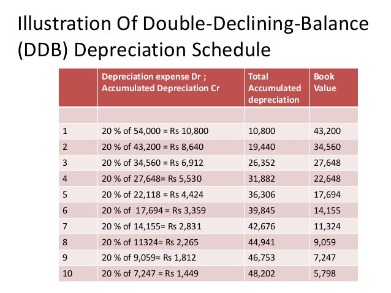
Investors and creditors furnish the money that a company needs to operate, and not surprisingly, they feel the same way. In most cases, accountants use generally accepted accounting principles (GAAP) when preparing financial statements in the U.S. GAAP is a set of standards and principles designed to improve the comparability and consistency of financial reporting across industries. The primary objective of an audit is to provide an opinion on the financial statements prepared by management.
Financial Reporting:

This can include obtaining additional certifications, attending conferences and seminars, and staying up-to-date with the latest bank reconciliation accounting software and technology. It helps them make informed decisions about investing, lending, working, and supplying to a company. Investors and owners use this information to make decisions about investing in a company. They can see how profitable the company is, how much debt it has, and how much cash it generates. Internal accounting monitors and examines the controls and processes implemented within the organization to detect fraud and weakness within the management and teams.
Mathematical skills are helpful but are less important than in previous generations due to the wide availability of computers and calculators. Larger companies often have much more complex solutions to integrate with their specific reporting needs. Tax accounts balance compliance with reporting rules while also attempting to minimize a company’s tax liability through thoughtful strategic decision-making. At larger companies, there might be sizable finance departments guided by a unified accounting manual with dozens of employees. It’s also worth noting that while all CPAs are accountants, not all accountants are CPAs. Accounting is like a powerful machine where you input raw data (figures) and get processed information (financial statements).
What are the two main types of financial accounting?
Even though it won’t actually perform the work until the next month, the cash method calls for revenue to be recognized when cash is received. When the company does the work in the following month, no journal entry is recorded, because the transaction will have been recorded in full the prior month. The transaction is recorded as a debit to cash and a credit to unearned revenue, a liability account. When the company earns the revenue next month, it clears the unearned revenue credit and records actual revenue, erasing the debt to cash. These multinational standards, which are issued by the International Accounting Standards Board (IASB), differ from U.S.
- When the client pays the invoice, the accountant credits accounts receivables and debits cash.
- As with tax accounting, financial accounting mistakes can cost you a lot of money and get you in legal trouble.
- It’s most commonly done by financial accountants to ensure that the company’s financial statements comply with the Generally Accepted Accounting Principles (GAAP) standards.
- As a business owner, it might be wise to consult a forensic accountant if you suspect that there might be some criminal activity going on in your company.
- One of the most common career paths in accounting is becoming a financial planner.
It requires wave accounting review: features and pricing a skill set different from all other types of accounting because the government has unique needs that are unlike those of organizations in the private sector. Accounting is by far one of the most important and prevalent fields in the world today. Its use in organizing business transactions and meeting regulatory requirements makes it a field that requires extensive knowledge and study.
These guidelines dictate how a company translates its operations into a series of widely accepted and standardized financial reports. Financial accounting plays a critical part in keeping companies responsible for their performance and transparent regarding their operations. If you loaned money to a friend to start a business, wouldn’t you want to know how the business was doing?
Therefore, it is crucial that all financial reports are accurate and up-to-date. Another important function of accounting in financial analysis is to provide information on the cost of goods sold. Financial analysts use this information to calculate gross profit margin and net profit margin. By providing relevant and reliable financial information, businesses can evaluate their financial performance, guide to taxes on dividends identify areas that need improvement, and make sound business decisions.
Fundamental Analysis: Principles, Types, and How to Use It
To speed up action, you may hire accounting professionals or purchase accounting software to ensure accurate financial audits and reporting. An accountant is a professional with a bachelor’s degree who provides financial advice, tax planning and bookkeeping services. They perform various business functions such as the preparation of financial reports, payroll and cash management. For those who enjoy working with numbers, a career as a bookkeeper may be a good fit. Bookkeepers are responsible for recording financial transactions, balancing accounts, and creating financial reports. One of the key functions of accounting is to provide information to stakeholders.
Merchants not only needed to track their records but sought to avoid bankruptcy as well. Accounting helps a business understand its financial position to be able to make informed decisions and manage risks. You can outsource your accounting work to outside professionals who specialize in bookkeeping and tax preparation. Outsourcing can offer many advantages because it allows you to take advantage of specialized skill sets that may not be available when hiring someone in-house. A certified public accountant (CPA) is a type of professional accountant with more training and experience than a typical accountant.
By analyzing these statements, businesses can identify areas where they need to improve their financial performance and make informed decisions about their future. Financial accounting includes the preparation of financial statements, such as the balance sheet, income statement, and cash flow statement. These statements provide a snapshot of a company’s financial position, performance, and cash flow over a specific period. Accounting provides financial statements that show the financial performance of a company. They provide information on a company’s revenues, expenses, assets, liabilities, and cash flows. The four types of accounting – financial accounting, managerial accounting, cost accounting, and tax accounting – provide different insights into a company’s financial health and performance.
